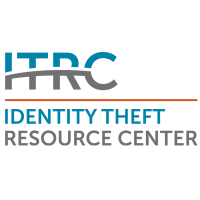SAN DIEGO, Calif. – October 2, 2017 – The Identity Theft Resource Center® (ITRC), a nationally recognized non-profit organization established to support victims of identity theft, today released its Identity Theft: The Aftermath2017 report that explores the impact of identity theft victimization. The report, which has been conducted intermittently since 2003, is compiled from voluntary responses of victims who contacted the ITRC for assistance in 2016. This year’s report shows that three quarters of the survey respondents expressed they were severely distressed over the misuse or attempted misuse of their personal information.

The survey also revealed nearly one-fourth of the participants sought professional help to manage the emotional and physical symptoms they suffered as a result of this crime, while 13 percent said they would have sought assistance but were unable to afford it.
“We’ve often found that when people think of identity theft, they think about the financial ramifications associated with this crime on its victims, not the emotional impact,” said Eva Velasquez, CEO and President of the ITRC. “In looking at the Aftermath results,we continue to see the emotional devastation caused by this crime, which further reiterates the need for all stakeholders – consumers, industry and government – to work together to influence change and ultimately reduce the amount of people impacted every year.”
Similar to prior years, the survey responses help the ITRC capture quantitative data pertaining to identity theft to better understand the impact of this crime from the victims themselves. ITRC also uses the responses to identify trends that may influence identity theft issues year after year.
Additional findings include:
Lost Opportunity Costs: In dealing with their identity theft case, nearly one-third of respondents indicated they spent time away from other life experiences, like hobbies or a vacation, with more than 25 percent indicating they had to borrow money from family or friends. Some respondents reported having to take time off work or spending time away from family (both at 22 percent) while others found it necessary to relocate or move, or sell possessions (both at 15.3 percent).
Financial Effects: 38.2 percent of respondents indicated they were either unable to obtain credit cards or were denied a credit card due to their identity theft incident, which is up 6.4 percent over last year’s figures. More specifically, 34.2 percent were unable to obtain a loan, 27.6 percent found themselves in debt, 15.8 percent were unable to rent an apartment or find housing, and 3.3 were forced to declare bankruptcy due to this crime.
Relationships with Others: Respondents noted they are now less trusting of family and friends at 15.9 percent and 15.2 percent, respectively.
About the Identity Theft Resource Center
Founded in 1999, the Identity Theft Resource Center® (ITRC) is a nationally recognized non-profit organization established to support victims of identity theft in resolving their cases, and to broaden public education and awareness in the understanding of identity theft, data breaches, cybersecurity, scams/fraud, and privacy issues. Through public and private support, the ITRC provides no-cost victim assistance and consumer education through its call center, website, social media channels, live chat feature and ID Theft Help app. For more information, visit: http://www.idtheftcenter.org
